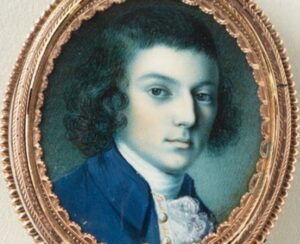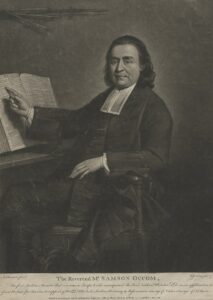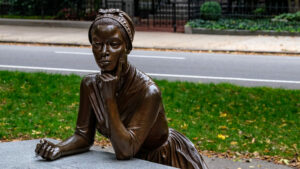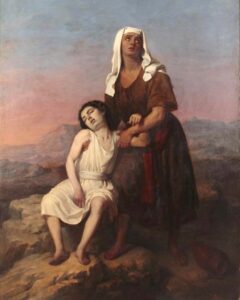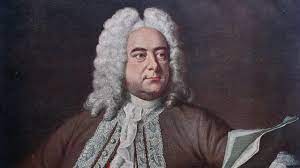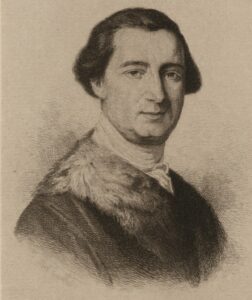Americanism Redux
September 21, your today, on the journey to the American Founding, 250 years ago, in 1773
The future is in front of you. It’s just ahead, in the direction that your face is facing. Always in front.
But where’s the thing that affects your future? Is it further in front, beyond your sight? Or off to the side, hiding, or behind you, out of your field of vision?
Ask these people. See if they know.
********************************
A pre-teen boy listens to the adults around him. Some speak in a strange language, others in a language he knows. The boy realizes that they want him to take off his shirt and raise one of his arms. A doctor steps toward him, holds his arm, and then pushes a long needle into thin child-muscle. It’s an inoculation delivered by the German- and English-speaking Dr. John Matthew Otto in the small Moravian Christian village of Gnadenhutten in O-ee-o, translated as “beautiful river”, Ohio. Walking out the cabin door, the boy winces in pain from the stab. A small amount of smallpox rests in his arm.
A teenaged boy-man sits in his room at King’s College in New York City. He’s a first-year student, and gives his utmost, his best effort, in every class and tries to act correctly with every teacher. He studies, pays attention, avoids trouble. The faculty notice him and like him. So what? The boy-man is still miserable. He’s thinking of the young woman he loves and that he can’t wait to quit school, return home, and marry her to start their life together. No one will understand, especially not his stepfather named George Washington. John Parke Custis Washington wants to be the husband of his girlfriend and he’s thinking through how it can happen.
(John Parke Custis Washington)
A fifty-year old man struggles to get out of bed. He’s tired. Exhausted is more like it. He aches from a journey of miles and miles of preaching, riding, meeting, and greeting. He is Samson Occom, a Christian minister from the Moheagan tribe in the colony of Connecticut. With a shaking hand, he writes a letter to a friend in Boston, Susannah Wheatley. He expresses worry for her health and asks her to pass along well-wishes to her husband and sister as well as to her son and “Phillis.” He apologizes for having not seen them while he was in Boston. Occom informs Susannah that he hopes to return to traveling in a few weeks, touring again as a journeyman evangelist. When the leaves turn red and gold, he hopes to be riding his horse carrying a Bible in his knapsack.
Occom didn’t see Phillis in Boston because she was on the Atlantic Ocean. She’s back in town now, staying with the Wheatleys again, the family that enslaved her after arrival from Africa. The nineteen-year old Phillis is as tired as Occom but for different reasons. She’s traveled by ship from England and docked in Boston just a few days ago. Yesterday was a whirl-wind of social activities as Phillis met Susannah’s friends and received their praise for her artistry. She also read some of her poems and essays aloud to groups of visitors. They clapped approvingly. Both Phillis and Susannah are hopeful for further publicity, acclaim, and sales of her writings in the weeks and months ahead.
(Phillis Wheatley)
Hagar, an enslaved adult black woman, age unknown, sits in a dirty jail cell on the eastern shore of the colony of Maryland. She awaits sunrise. That’s when she’ll know the final outcome of deliberation among the colony’s judges. They’ll decide her punishment…and her life. She’s been charged and found guilty for attacking and attempting to kill a white man. She’ll be whipped, beaten, branded, caned, or perhaps executed for the crime. And now she waits to know the five white judges’ decision as to what will be the source of her pain, or death. The sunlight will reveal her fate.
(her Biblical namesake)
As sunlight fades, William Sampson Morgan places his violin in its case. He’s in Philadelphia, colony of Pennsylvania, finishing his final practice for tomorrow’s show at Concert Hall. Holding the position of first violinist, Morgan is the featured musician performing selected portions of George Handel’s “Messiah”, accompanied by the band from the 64th Regiment of Foot of the British Army. Morgan’s selections are from Handel’s work written in honor of British King George I, great-grandfather of the current British monarch, George III. The king was the composer’s Messiah, and Morgan will be the latest interpreter of the piece.
(George Handel)
Lives unfolding. No politics. No politicians. No governmental affairs. No governing issues. Going into a future.
Also
Outside Concert Hall where “Messiah” will be performed, Pennsylvania’s Governor John Penn has declared that his colonial government will no longer tolerate settlements on lands lately acquired from Native tribes. All such settlers, Penn announces, will be forcibly evacuated by colonial officials charged with enforcing the laws. Further similar land acquisitions will be illegal. The decision is final. Governor Penn seeks to punish these land-grabbing lawbreakers.
(Governor John Penn)
Separate from Penn but in the same colony of Pennsylvania, a man with the public-name “Pacificus” has completed an essay ready for printing in tomorrow’s edition of the Pennsylvania Gazette. Pacificus is upset with local politics in Penn’s Pennsylvania. The bitterness, meanness, hurling of insults and accusations, and total breakdown of social connections because of political disputes have driven Pacificus to frustration and depression: can’t we do better and aren’t we better people? He proposes a public meeting of “moderate, sensible, and reputable” voters to come together to choose two appropriate legislative candidates for the upcoming election in Pennsylvania. Surely, Pacificus states, people can agree on our collective desire to do what’s right, do what’s best, do what’s in the general public interest without ripping each other to pieces. For this future meeting, Pacificus asks the readers, please make plans to attend.
(transmitter of Pacificus)
And in Boston, printed in a different Gazette, people on the streets are reading or hearing read to them an essay written by “A”. This writer asserts that the answer to current imperial problems lies with Messiah’s inspiration, or rather, his great-grandson, George III. The writer hopes that today’s monarch will choose new advisors and administrators who realize that “American liberties” are as vital as “British liberties.” “A” further states that he, or she, is in agreement with an insight offered by Benjamin Franklin two years ago:
“That a state of Rights should accompany a complaint of grievances; and that decent and manly protests against particular innovations have the surest tendency to an effectual, if not a speedy removal of them.”
(transmitter of A)
For You Now
Read that last paragraph again—a state(ment) of rights and a list of grievances. Sound familiar? That’s essentially 1776’s Declaration of Independence, proposed as an action-step by Benjamin Franklin in 1771 and now retrieved and re-proposed by A in 1773.
Now, let’s do something “re-” for ourselves with this entry of Redux. Reconsider my wrap-up comment at the end of the entry’s first part above—my reference to the presence of daily living and the absence of all things political. As is often the case with my writing, I’m communicating two things at once.
Everything in the personal, nonpolitical stories will, sooner or later, blend into the public and the communal, while everything of group and polity will rest ultimately on individuals. The future is the arena where the blending and resting becomes a story.
The smallpox inoculation in the boy’s arm will have to be replicated and injected, in the future, into the Revolutionary War’s soldiers afflicted with the disease, while the village where the boy lives will be the scene of war’s horrific effects.
John Parke Custis Washington will join his stepfather at the time of the siege of Yorktown in 1781 and will then die of an undefined “camp fever” for which no inoculation is available. The last experience of John’s life, in an irony of cosmic proportions, will be in the place where the last major clash of the war occurs.
Confronting exhaustion again, soon in the form of war, Occom will decide to ride off from it. He will act to escape the war and its bloodshed, heading west in New York toward the Great Lakes to start a community called “Brothertown.” His community serves as an important precedent for subsequent Native-controlled areas in the 20th century.
After war begins, Phillis Wheatley will be invited to meet with General George Washington during the time he and his army is stationed in the vicinity of Boston. She will read to him, an enslaver, her poetry and reveal the lie of enslavement.
Hagar we will meet again next week, once more and no more.
The violinist William Morgan gives us a gentle reminder of, first, the private and the public co-inhabiting the same space and, second, that their relationship is both changing and continuing over time. He’s preparing to play music that the composer intended for one public purpose but which, as time flowed, people as private persons came to reshape and reform toward a different end, like water on the rock. Future audiences still stand for the closing portion of “Messiah”, though not for the same reason.
My point is that the ever-flowing process of your future then becoming your present, and your present then becoming your past will land you somewhere else from now and before. It’s happened for you already at prior stages in your life. Likely, you’re aware of it and can tell a story about it. But avoid the mistaken assumption that these precedents dictate or determine the next version ahead. They don’t. That’s because the rhyme of then/now/next will re-sound in a way where your recognition stops at a particular point. Beyond that point will be something new, the sound unfamiliar to you. And it’s very possible that in our journey toward the 250th of 2026 the new will be a turning where, in parallel moments, you’ll need to grasp the known and absorb the unknown. Perhaps it will be a good time to remember to listen to Messiah.
(Note the rhyme: the sounds are similar but the meanings are not)
Suggestion
Take a moment to consider—it’s a 2+3 time span from Franklin’s mention of a Declaration-like expression (1771) to A’s re-expression two years later (1773)—and from A’s re-expression to the actual Declaration three years hence (1776)—thus, 2+3. Does a 5-year time span strike you as a long time for such a turn of events? And what do you expect of yourself over a 5-year moment?
(Your River)


